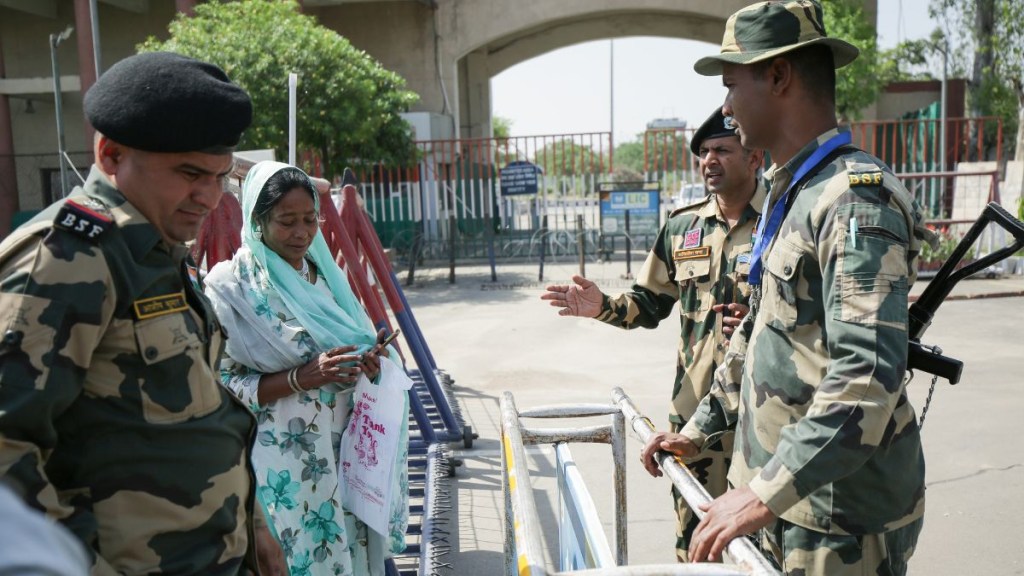Among the several punitive measures the Indian government has announced since the Pahalgam terror attack that killed at least 26 people in India’s Jammu and Kashmir, the Attari border closure has its own share of severe implications on trade and Pakistan’s economy. Located near Amritsar in Indian and Wagah in Pakistan, the Attari-Wagah border has served its crucial purpose as the sole permissible trade route between the two countries.
With India only trading with Afghanistan via the Attari-Wagah border, its closure has ultimately signalled uncertainty for the countries trade relations. “We are not sure about the status of trade with Afghanistan. Sealing the Attari border could be limited to people’s movement. There is uncertainty, and we are waiting for clarification,” an international said, as quoted by Indian Express.
Where does trade stand: Attari border closure
While the Wednesday statement did not highlight any impact on retreat ceremonies, passenger movement across the border majorly fluctuated over the last few years, documenting falling numbers, according to official data. It first fell from 80,314 crossings in 2017-18 to 78,675 in 2019-20. The COVID-19 pandemic hit those numbers like a wrecking ball, pulling them down to just 6,177 in 2020-21. Although the numbers are gradually climbing again, they are still below pre-pandemic levels: 71,563 in 2023-24.
On the trade side of things, the lowest figures were recorded in 2022-23 at Rs 2,257.55 crore. They’ve since recovered to some extent, reaching Rs 3,886.53 crore. Cargo movement witnessed a similar drastic fall, with numbers hitting as low as 3,827 in 2022-2023. The following season pushed for better numbers, marking a slight increase in trade activity at 6,871.
Miniscule India-Pak trade still on may be shut down soon
Moreover, India is also considering completely pausing trade with Pakistan in light of the Pahalgam attacks. This punitive move severely dent Pakistan’s economy, which relies on imports of fruits, pharmaceuticals, organic chemicals, vegetables and sugar from India, sources tied to the process told Mint.
“We have minuscule trade with Pakistan, which is constantly declining. During April-January 2025, it was less than $500 million, compared to overall trade of over $800 billion in the same period, making it just 0.06% of India’s international trade,” director general of the Federation of Indian Export Organisations (FIEO) Ajay Sahai said.
“This trade will now come to a complete standstill, affecting the supply of some key products to Pakistan and hitting their economy even further.” The previous source noted that even though we already have very little trade trade with Pakistan with restrictions in place, the ones that are still on could be stopped soon to “make them realise that what they are doing (sponsoring terrorism) is against the interests of peace and stability
With these number in sight, the Attari border being ceased implies an undisputed disruption of flow of goods. With Pakistan already suffering economic distress, the Pahalgam terror attack has further sent the country’s stock market crashing. The Pakistan stock exchange (PSX) opened on a striking low on Thursday with India’s retaliatory diplomatic measures already in place.
Pakistan stock market already slumping after Pahalgam terror attack
The Karachi-100 index (KSE-100) fell over 2% or 2,500 points to 1,14,740.29 in the very first five minutes of trading. Although some losses bounced back by 3 pm, numbers were still as low as 1.31% or 1,532.42 at 115,693.72. These developments followed the index slipping 1,204 points on Wednesday as the International Monetary Fund (IMF) slashed Pak’s GDP growth forecast for FY25 to 2.6%.
Similarly, the Asian Development Bank (ADB) diminished the country’s 2025 GDP growth forecast to 2.5%. In December 2024, these number sat at 3%. Neither of these estimations come close to Pakistan government’s 3.6% target. The PSX graph now heavily relies on geopolitical tensions being resolved.
However, that no longer seem to be in sight. Pakistan Defence Minister Khawaja Asif declared “an all-out war” in a recent interview with British news channel Sky News. After accusing India of ‘staging’ the Pahalgam terror attack, he said that a potential clash between India and Pakistan – two nuclear powers, will be “worrisome,” spiralling into a “tragic outcome.”

